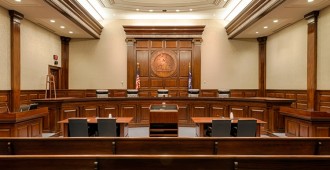
November 14, 2013
Board Eschews Federal Circuit Claim Construction in Granting IPR Trial Requested by Google
In concise decision, Google was able to get 9 challenged claims of a Whitserve patent into a trial for inter partes review in a case styled as Google, Inc. v. Whitserve LLC (IPR2013-00249), involving U.S. Pat. No. 6,981,007.
The ‘007 patent relates to a “system for backing up data stored on a central computer over the Internet to a local client computer.” In particular, the ‘007 patent relates to “outsourced, Internet-based data processing” and “safeguarding customer/client data.”
Of interest in the claim construction portion of the Board’s opinion is the construction of the term “internet-based data.” Petitioner pointed out to the Board that the term was construed by the Federal Circuit, but argued that such construction was too narrow and that, under the “broadest reasonable interpretation” standard, a more broad interpretation was appropriate in this proceeding. Order at 6. More specifically, the Federal Circuit found the term to require “the ability to modify centrally stored data from across the Internet, rather than simply sending it across the Internet.” Petitioner sought a finding that the term meant “data that is accessible, stored, modified, or processed via the Internet.” Id.
The Board agreed that Petitioner’s construction was too broad, basing its conclusion in part on the fact that the specification disparages embodiments that that fall within that proposed claim scope. As such, the Board found that the term should be construed to mean “data that is capable of being modified via the internet.” Order at 8.
While the Board’s definition is different than that adopted by the Federal Circuit, and arguably broader because of the inclusion of the “capable of” language in that definition, the subsequent unpatentability analysis indicates that the Board would likely have found unpatentability no matter which definition was used. For example, with regard to one of the prior art references, a bank website, Patent Owner argued that the download of data, to a local program, was not Internet-based data, because it was not modified at a central server. The Board disagreed, finding that additional disclosure from that reference, including bill paying, necessarily would require a modification of data at a central server (such as ending balance of an account). This finding would, seemingly, have read on both the Federal Circuit’s and Board’s construction of the term. It is, nonetheless, interesting to see the Board come to a different conclusion regarding the scope of a claim than that adopted by the Federal Circuit.
It is also interesting to note that the bank website was obtained via the Internet Archive. The Board did not seem to have any issue in accepting this reference as prior art, despite its Internet-based nature. The Internet Archive is, of course, an excellent resource for prior art and the Board’s acceptance of this evidence is helpful to future Petitioners.
In the end, the Board granted an IPR trial on all 9 claims at issue in the Petition.


































